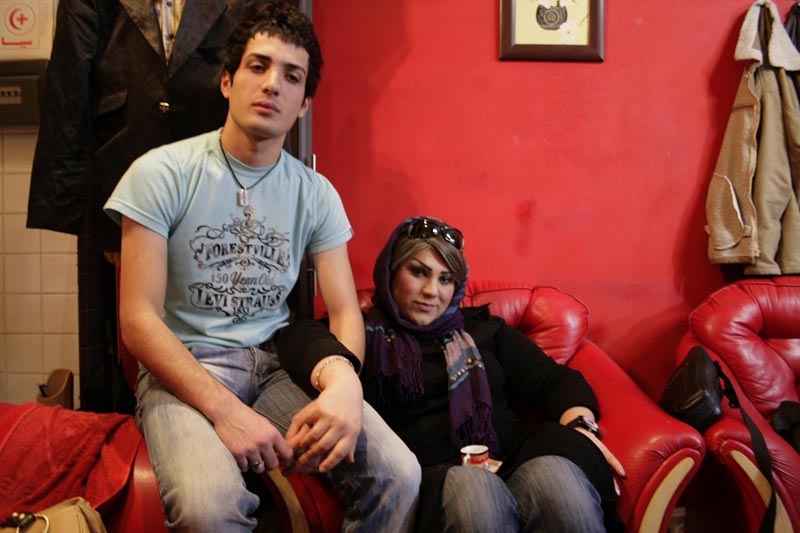First off: here are two stills from Be Like Others, which is playing again on Oct. 4th (4:00 pm) at Empire Granville 7 in Theatre 5.

Photo caption: Annosh’s boyfriend and Annosh

Photo caption: Ali
So what does a Iranian film about “elective” sexual reassignment (screening at this year’s Vancouver International Film Festival) and the recent attacks (view here and here) in Vancouver have in common? Maybe something, maybe nothing…it turns out our provincial courts have an important decision to make about what’s been happening lately in Vancouver. That said, things could be worse. Documentaries like Be Like Others reveal just how different things are in other parts of the world.
Vancouver International Film Festival Review: Be Like Others
With every passing year, homosexuality is becoming more and more tolerated in many countries around the world. But full acceptance is still a long ways away, even here in Canada.
In Iran, homosexuality is punishable by death. One of the more common sentences is death by stoning. However, interpretations of the Koran permit men and women who are attracted to the same sex to undergo sexual reassignment, the only legal identity they can possess under Iran’s strict social codes. Imagine if that was your only choice in life: gender reassignment…or death.
Be Like Others follows a number of homosexual men as they embark on the decision to become women in the eyes of Allah (there are also a few fleeting glipses of homosexual women, but they are few and far between). Early in the film, Iran’s cleric responsible for transsexuals tells documentary-maker Tanaz Eshaghian: “If [homosexuals] want to change their gender, the path is open.” Which sounds oddly progressive, but the journeys of characters Annosh and Ali may convince you otherwise.
“You are unusual creatures,” says one of the few doctors sympathetic to their damned-if-you-do, damned-if-you-don’t position. “But completely normal.”
Vida, a transexual who helps pre-op men through their transitions, is another integral character in this film. Midway through the documentary, her own position on sexuality quietly highlights the greater tragedy of this film. She openly admits to hating gays and punctuates it by telling Eshaghian: “I cannot be friends with someone gay.” If you’d like to see a classic study on how marginalized minorities take on the ideology of their oppressors, this is your documentary.
However, you should prepare yourself for the following: there are a number of points throughout this film where members of the audience were crying uncontrollably. When the protagonists ask rhetorical questions about what life is like for queers in the West, your heart will break. When the documentary flashes forward in time to conduct post-op interviews with Annosh and Ali, all I could think is how terribly important it is to be visible and not to hide your sexuality in order to conform.
**I personally believe this is a film that should be shown in schools during a MANDATORY social justice component for students.**
I also believe in putting my money where my mouth is: today I had the opportunity today to go to Surrey, Burnaby and Robson St. in Vancouver with a CBC reporter to conduct an investigative study. We held hands in public places to gauge how homophobic in each community. If you’re interested in what we found out, tune in to the Early Edition on CBC at AM 690 this morning from 7 – 9 am. You’ll be surprised by public reaction.
And if you’re looking for something to do tomorrow night, come out for the screening of The “Thank You” Girls which is playing at 7:00pm in the Vancity Theatre. Here’s a teaser:
 Why you can trust Xtra
Why you can trust Xtra


